
WELCOME TO THE BRAIN GAMES
Get ready to immerse yourself in the Mindscape: a dystopian arena where the Brain Games take place. This comic offers a glimpse into the neuroscience behind executive functions. While many brain areas and networks are involved in the neurobiology of executive functioning, this story focuses on a few important players: dorsolateral prefrontal cortex, ventrolateral prefrontal cortex, medial prefrontal cortex, anterior cingulate cortex, and posterior parietal cortex. By the end, you'll have a broad understanding of how these regions contribute to executive functions through their interactions as they navigate the Brain Games.
It was time. Time for the Brain Games to begin.

For as long as the Mindscape could remember, the Games had been a ruthless tradition. A test of dominance. A battle where brain areas competed for control. And each year, only one survived.
But this year…..something was different.

The opposition had risen to power in the last election. Once critics of the Games, they now held control—and with that, they rewrote the rules.
Meet the characters! Click on their names below to read about their scientific significance.
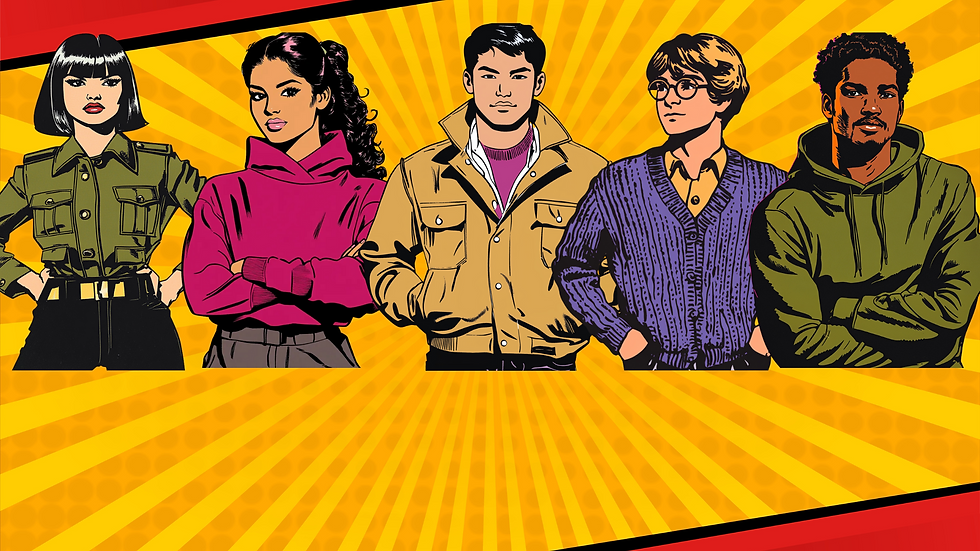
Scene 1: Dobbie, Pallavi, Milo, Vince and Arturio wake up in a clearing in the maze.
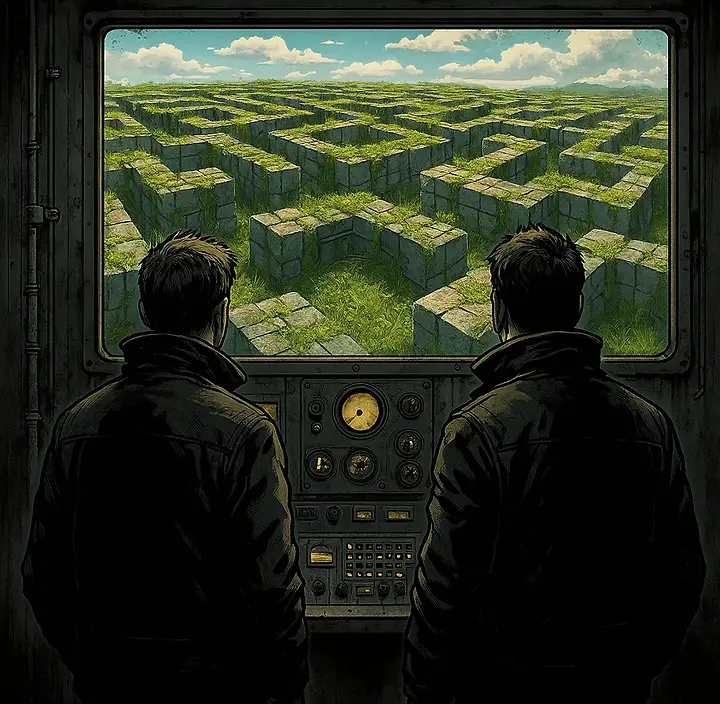

Ugh… my head is spinning. Where on earth are we?

Wake up, players. You thought you could run the Games forever? you must wake from your fantasy. Now, we run the Games. You will fight for your lives, and only one of you shall emerge victorious.”

The Gamemakers Control Panel
Dobbie and the others, once the masterminds behind the Brain Games, now found themselves trapped in the Mindscape—only this time, it had been reengineered by the opposition’s Gamemakers.

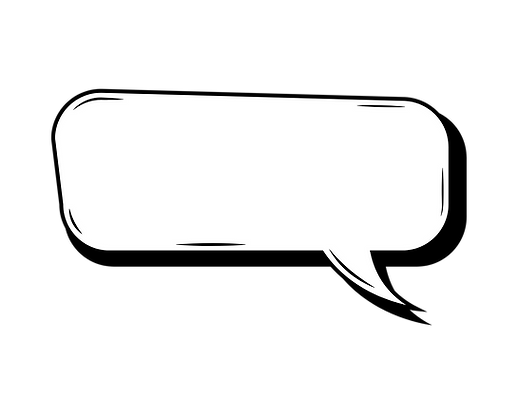
"Wait….are we in the Mindscape? It isn’t the same as we had designed last year. We are in a maze. This maze… it's in motion. The walls are shifting. Spatial layouts are changing. ”

They want us to turn on each other... why us? I wonder what they are thinking, I wonder what their perspective is..
Scene 2: The Maze Challenge Begins
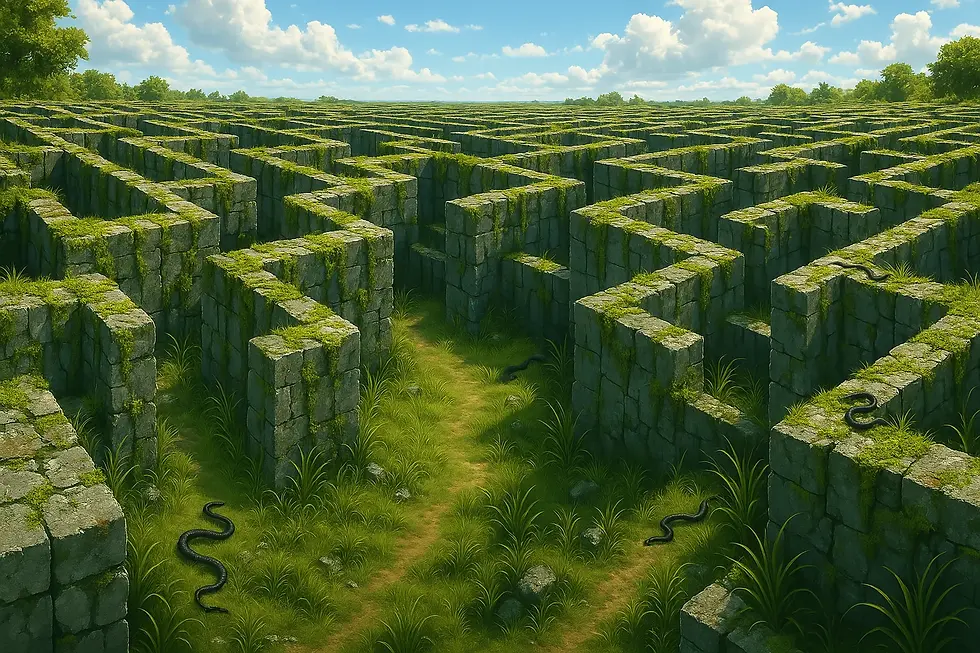
The shifting maze opens up before them—a dizzying labyrinth of tall walls and disappearing paths. The walls keep changing every day at noon, making it hard to keep track of where they are in the maze. The air is tense with uncertainty.

so they play on their strengths to come up with their own strategies to win


This zone… it’s the same one the snakes came out of yesterday. Same time too–they almost got me.(He slows, scanning ahead)
The rule still stands, this zone isn’t safe right now. I’ll hold here until it is. I know I need to cross eventually... but for now, better to stay put. Just stop.

Huh... the paths we each
think are ‘safe’—they
vanish the moment we act. They’re not just manipulating the maze... they’re manipulating us. I wonder how everyone else is doing....Are they picking up on this too?
If I rotate the structure 90 degrees, the left path
becomes the north segment.
That’s where the wall might fall. But wait… what would this look like if I were standing on the other side? Okay, then that segment shifts to the right. Hmm. Maybe I’ve been trying to calculate this like a static puzzle, when really it’s a moving target. I need to think about this differently

I was about to embark on the usual path... but the layout changed today at noon, as it does everyday. That means, this route won’t work anymore. Alright, keeping the new shift in mind, I’ll substitute taking a path that works for today’s layout rather than what I’d intended.

Dobbie just missed a
turn and almost had a wall crushing down on her! Trap triggered. I need to alert her. (He notes each error and mentally flags changes in difficulty)

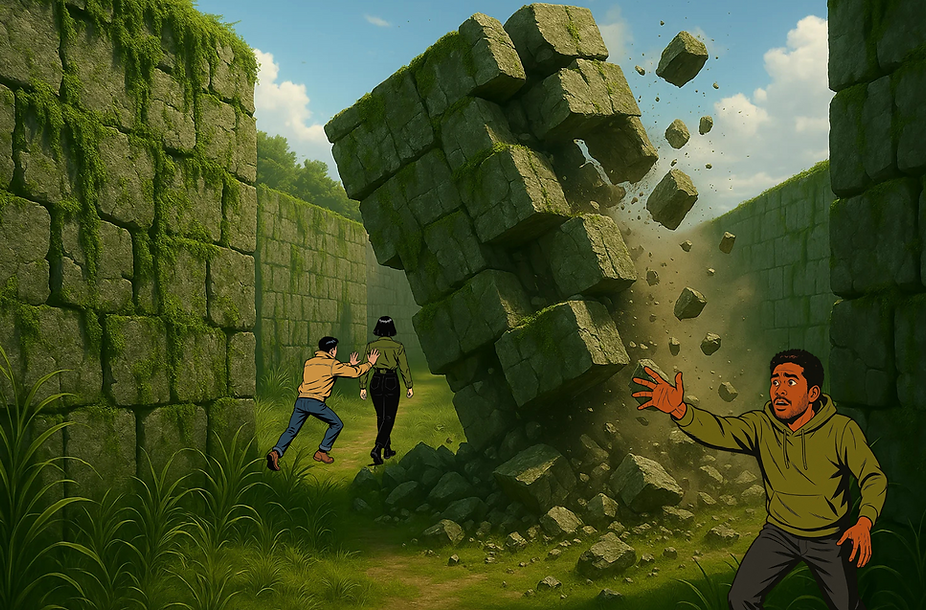-7.png)

DOBBIE, STOP!!!
The wall is collapsing!
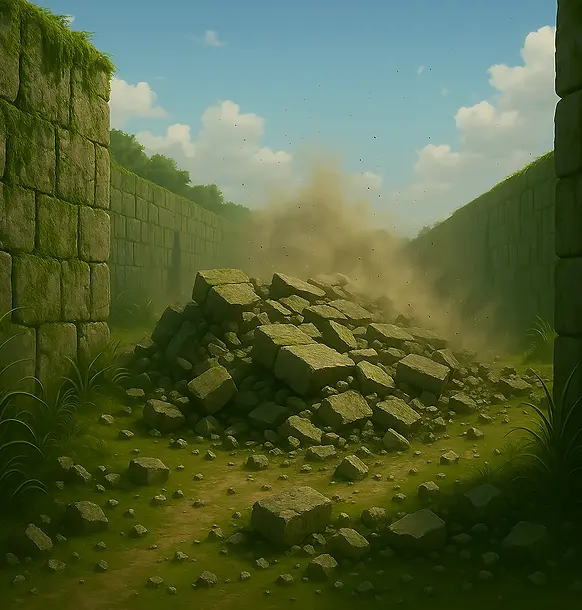.webp)
-8.png)
Arturio doesn’t hesitate. He was close to Vince, Dobbie, and Milo before all this—before the arena. And now, as the conflict builds, he realizes it’s not enough to just detect their mistakes and alert them when the situation becomes more difficult. They need listen to him too! A warning means nothing if no one hears it.
If they’re going to make it through, the prefrontal team – Dobbie, Milo, and Vince –have to pay attention and step up. The situation calls for more than instinct.
-45.png)
-55.png)

You were about to step right into it! You probably thought that path was safe because the last time the shadows shifted like that, it was. But the rule’s changed – same cue, different outcome. You’ve got to be careful when a signal stops meaning what it used to.
-14.png)
You think you know better than me? We live and we learn. Now that I’ve seen how the paths are shifting, I can figure it out on my own. I don’t need you.
-13.png)
You could have died there Dobbie! You’ve got to be careful when a signal stops meaning what it used to. We used to be a team, remember?

All that information in your memory, but couldn’t piece it together to see that wall was about to collapse?

I had the pattern. Or… I thought I did. I tracked every shift, every shadow, every trap that triggered. But the rule’s changed – same cue, different outcome.
-15.png)

They don’t see it yet. The Gamemakers are pulling us apart, and it’s working. I can tell – they still think they’re in control. But we’re not making decisions anymore. We’re reacting, just like they want. We’re not players. We’re being played.
-16.png)
Scene 3: Dobbie and pallavi cross paths
-46.png)

Every time I get close, something shifts. My working memory can’t hold it all. Maybe, not alone.
-47.png)
-13.png)
Dobbie, I tried manipulating information to predict how the maze changes by myself. But it doesn’t land without your maintenance of information in working memory. Without you guys, I feel like a Samosa without Chutney.

Leave it to you to crack a joke while the world’s on fire
-48.png)

You know what? Pallavi, I trust your ability to rotate, shift attention to what matters, and manipulate the information I’m holding in mind. And Vince – I gotchu, bro. Let’s help each other out.
-13.png)
Agreed. We can’t win alone. Let’s win together. Because it’s together or not at all.
-23.png)
Vince, you look so…. overwhelmed. I can help you hold more in mind. Pallavi, how are you holding up?
They work in sync. For the first time, the gates open smoothly.
On the other side: a tree full of big, ripe mangoes.
They hadn’t eaten all day. The second they saw it, they started jumping with joy!
-21.png)
-51.png)
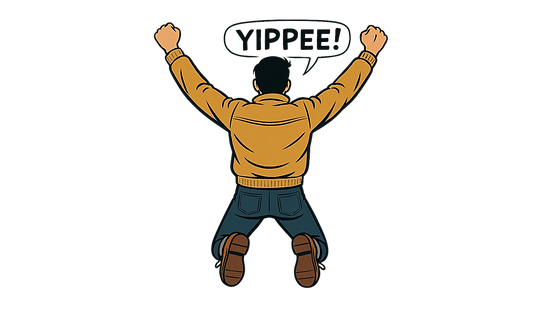
-24.png)
-23.png)
Wow… if the three of us got these gates to open, imagine what would happen if asked the others to work with us! We were the gamemakers once, we all liked each other and worked so well, as a unit. The Gamemakers don’t like this, and this is their way of torturing us. How does that make you feel?
Hmmm… I am a bit skeptical but we could give it a shot
Scene 4: The big conversation
Dobbie and Pallavi return to the others, cautious. Milo is picking berries from a quaint bush he found in a middle of a clearing.
-26.png)
-25.png)
You look... different. Lighter.
-23.png)

We collaborated. Just once. It opened a path we never saw before. We feel that we are onto something
We think this maze
isn’t just physical. It’s psychological. We’re being conditioned to stay apart.
-27.png)
Milo considers, then nods slowly. After hours of searching, The three of them find Arturio and Vince.

The Game Makers are exploiting our individual strengths – but those same strengths together might be their blind spot.
-23.png)
And I’ll monitor the feedback. If we slip up, I’ll let you know fast. Dobbie, you almost died before but there is no way I am letting that happen again!
-28.png)
I’ve been too cautious. But if you tell me when to move... I’ll trust you

They form a circle. For the first time, their roles align deliberately so they can get out of the maze!
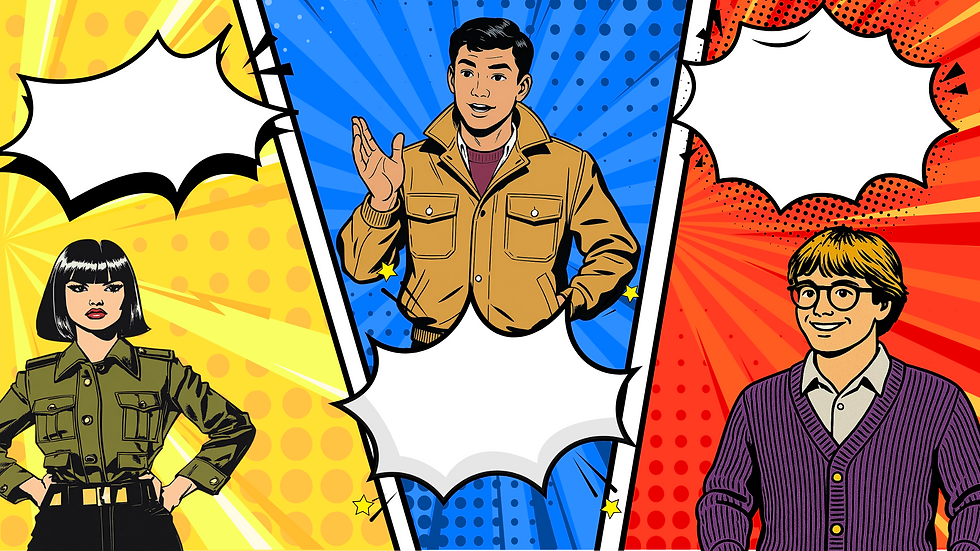
Dobbie holds information in working memory and uses inhibitory control to replace inappropriate reactions with more appropriate ones.
Milo tries to understand the gamemakers’ perspective and empathises with his friends when things get hard


Vince represents rules in mind and holds back impulsive reactions

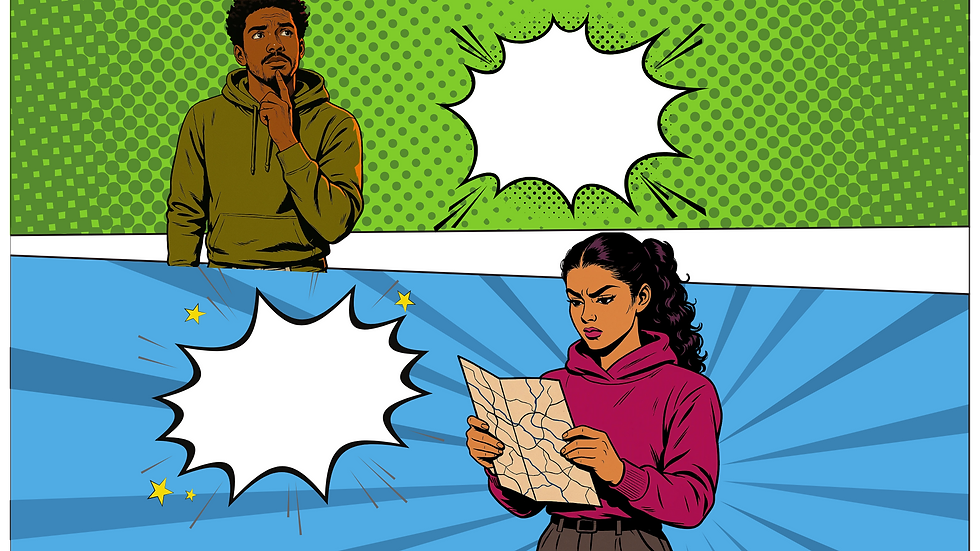

Arturio monitors task demands and errors, prompting Vince, Dobbie, and Milo to pay more attention when the situation gets more difficult.
Pallavi uses her cognitive flexibility to creatively solve problems, including mentally rotating and mapping the Mindscape
Scene 5: A system in sync
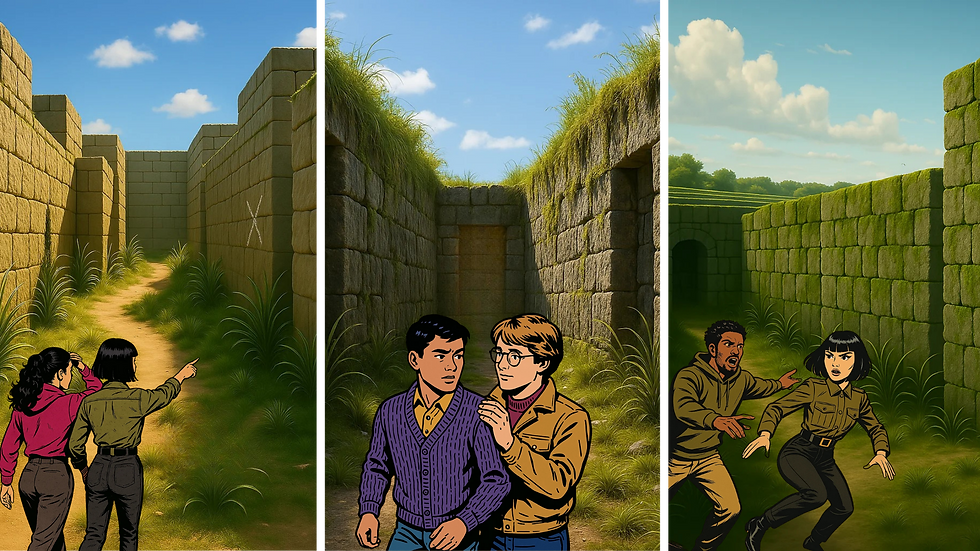
Pallavi, Vince, and Dobbie support one another as they work out a path that brings them closer to the exit. Vince and Dobbie hold important pieces of information in working memory, while Pallavi manipulates them to identify the safest route forward.
Milo notices Vince hesitate. He doesn’t need to ask why; the last time they were here, a snake nearly bit him. Milo places a steady, comforting hand on his shoulder. Vince nods, then pushes forward.
Arturio warns Dobbie she’s about to walk into the same trap as before. He tells her to pay more attention! She pivots smoothly, not missing a beat.
After days of navigating the maze, toiling under the sun, and narrowly escaping a collapsing wall, they finally fIND a way out. Together. Not alone, foiling what the Gamemakers intended

-14.png)
GUYS, IT HAS WINDOWS. REAL ONES. I THINK WE’RE BACK IN CIVILIZATION
Scene 6: return to the real world
The team steps through the exit. Light floods the space, but something feels… empty.

-35.png)
-28.png)

We’re out. But it doesn’t feel like victory.
Because it isn’t. Not yet.


-37.png)
They begin their quest to find Serry, the winner of the previous brain games...

There’s someone we need to find. The one we made win, when we were the gamemakers
-23.png)
The one we thought could stand alone…
Scene 7: The Last Winner
After 5 days of searching, they wanted to find Serry, the cerebellum, the winner of the last Brain Games. They wanted to apologize profusely for what they had put him through. After an exhaustive search, they finally found him.
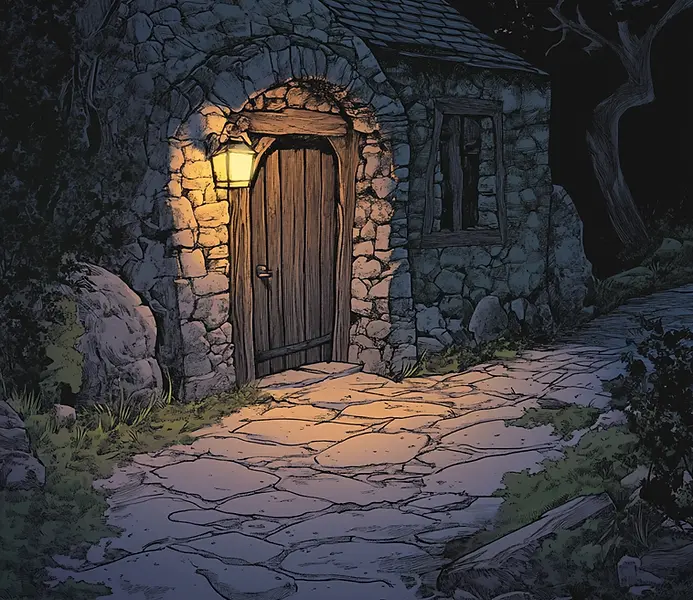
Serry’s front door is ajar. The group hesitates at first, then steps inside.
The sight stops them cold.
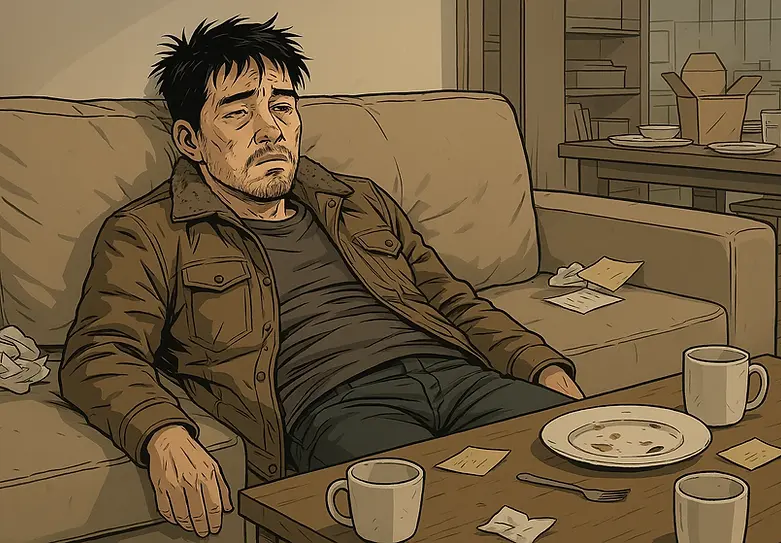
Serry The Cerebellum, once graceful and sharp, is slouched in a chair, mumbling to himself. His limbs twitch with uncoordinated motions. Scattered notes cover the floor; his house is a mess.
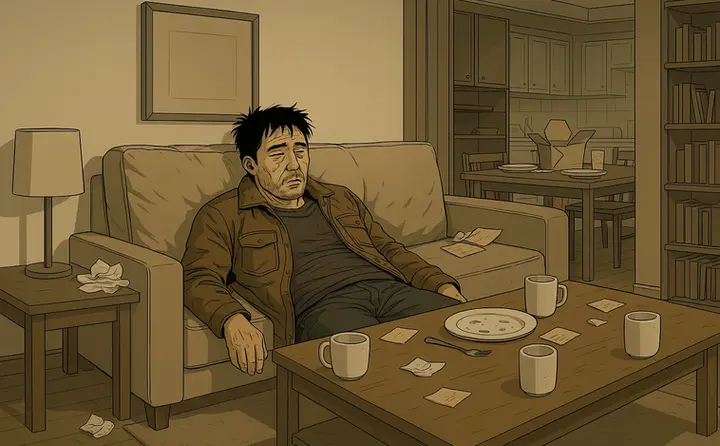

-24.png)
-23.png)
Serry... are you okay? What happened to you?
He’s… alone, and dysfunctional. Timing, movement, and balance, it all broke down without the rest of us, the rest of the brain areas.

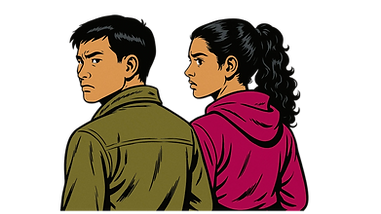

We built the Games to find the strongest. But we never realized strength doesn’t mean solo
-13.png)
He was never supposed to win alone. None of us are.
They bring Serry back to his community. He’ll live in the brain again — alongside the rest of the brain areas. Recovery will take time. But this time, he won’t be alone.
Forming new connections with the others might be what helps him heal.
The five sit together beneath a beautiful canopy, quiet for a long moment.
Then…
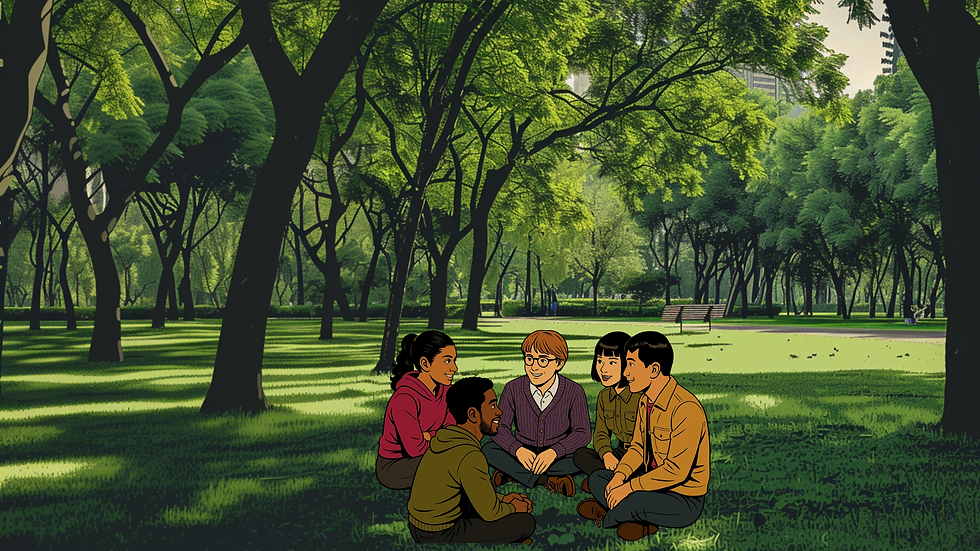

Let’s promise not to turn on each other ever again. No matter what anyone says?
-13.png)
I promise. We are all part of a network that only runs together.

So... can we all agree? No more deadly competitions?


You know what they call a group of brains working together?
A no-brainer
They laugh. The tension finally breaks.
The mind thrives through connection. And finally, they remembered what they were built to be: a team.
References
Amodio, D. M., & Frith, C. D. (2006). Meeting of minds: the medial frontal cortex and social cognition. Nature Reviews Neuroscience, 7(4), 268–277. https://doi.org/10.1038/nrn1884 Aron, A. R., Robbins, T. W., & Poldrack, R. A. (2014). Inhibition and the right inferior frontal cortex: one decade on. Trends in Cognitive Sciences, 18(4), 177-185. Bunge, S. A., & Zelazo, P. D. (2006). A Brain-Based Account of the Development of Rule Use in Childhood. Current Directions in Psychological Science, 15(3), 118–121. https://doi.org/10.1111/j.0963-7214.2006.00419.x Champod, A. S., & Petrides, M. (2007). Dissociable roles of the posterior parietal and the prefrontal cortex in manipulation and monitoring processes. Proceedings of the National Academy of Sciences, 104(37), 14837–14842. https://doi.org/10.1073/pnas.0607101104 Cole, M. W., & Schneider, W. (2007). The cognitive control network: Integrated cortical regions with dissociable functions. NeuroImage, 37(1), 343–360. https://doi.org/10.1016/j.neuroimage.2007.03.071 Crone, E. A., Donohue, S. E., Honomichl, R., Wendelken, C., & Bunge, S. A. (2006). Brain Regions Mediating Flexible Rule Use during Development. Journal of Neuroscience, 26(43), 11239–11247. https://doi.org/10.1523/jneurosci.2165-06.2006 Culham, J. C., & Kanwisher, N. G. (2001). Neuroimaging of cognitive functions in human parietal cortex. Current Opinion in Neurobiology, 11(2), 157–163. https://doi.org/10.1016/s0959-4388(00)00191-4 Dehaene, S., Piazza, M., Pinel, P., & Cohen, L. (2003). Three Parietal Circuits for Number Processing. Cognitive Neuropsychology, 20(3-6), 487–506. https://doi.org/10.1080/02643290244000239 Diamond, A. (2013). Executive functions. Annual Review of Psychology, 64(1), 135–168. https://doi.org/10.1146/annurev-psych-113011-143750 Gilbert, S. J., & Burgess, P. W. (2008). Executive function. Current Biology, 18(3), R110–R114. https://doi.org/10.1016/j.cub.2007.12.014 Haber, S. N., Liu, H., Seidlitz, J., & Bullmore, E. (2021). Prefrontal connectomics: from anatomy to human imaging. Neuropsychopharmacology, 47(1), 20–40. https://doi.org/10.1038/s41386-021-01156-6 Knight, R. T., Richard Staines, W., Swick, D., & Chao, L. L. (1999). Prefrontal cortex regulates inhibition and excitation in distributed neural networks. Acta Psychologica, 101(2-3), 159–178. https://doi.org/10.1016/s0001-6918(99)00004-9 Kostopoulos, P., & Petrides, M. (2008). Left mid-ventrolateral prefrontal cortex: underlying principles of function. European Journal of Neuroscience, 27(4), 1037–1049. https://doi.org/10.1111/j.1460-9568.2008.06066.x Krause, L., Enticott, P. G., Zangen, A., & Fitzgerald, P. B. (2012). The role of medial prefrontal cortex in theory of mind: A deep rTMS study. Behavioural Brain Research, 228(1), 87–90. https://doi.org/10.1016/j.bbr.2011.11.037 Leh, S. E., Petrides, M., & Strafella, A. P. (2009). The Neural Circuitry of Executive Functions in Healthy Subjects and Parkinson’s Disease. Neuropsychopharmacology, 35(1), 70–85. https://doi.org/10.1038/npp.2009.88 Logue, S. F., & Gould, T. J. (2014). The neural and genetic basis of executive function: Attention, cognitive flexibility, and response inhibition. Pharmacology Biochemistry and Behavior, 123(1), 45–54. https://doi.org/10.1016/j.pbb.2013.08.007 Menon, V., & D’Esposito, M. (2021). The role of PFC networks in cognitive control and executive function. Neuropsychopharmacology, 47(1). https://doi.org/10.1038/s41386-021-01152-w Miller, E. K., & Cohen, J. D. (2001). An Integrative Theory of Prefrontal Cortex Function. Annual Review of Neuroscience, 24(1), 167–202. Mohan, H., de Haan, R., Mansvelder, H. D., & de Kock, C. P. J. (2017). The Posterior Parietal Cortex as Integrative Hub for Whisker Sensorimotor Information. Neuroscience, 368, 240–245. https://doi.org/10.1016/j.neuroscience.2017.06.020 Niendam, T. A., Laird, A. R., Ray, K. L., Dean, Y. M., Glahn, D. C., & Carter, C. S. (2012). Meta-analytic evidence for a superordinate cognitive control network subserving diverse executive functions. Cognitive, Affective & Behavioral Neuroscience, 12(2), 241–268. https://doi.org/10.3758/s13415-011-0083-5 Sack, A. T., & Schuhmann, T. (2012). Hemispheric Differences within the Fronto-Parietal Network Dynamics Underlying Spatial Imagery. Frontiers in Psychology, 3. https://doi.org/10.3389/fpsyg.2012.00214 Squire, R. F., Noudoost, B., Schafer, R. J., & Moore, T. (2013). Prefrontal Contributions to Visual Selective Attention. Annual Review of Neuroscience, 36(1), 451–466. https://doi.org/10.1146/annurev-neuro-062111-150439 Strick, P. L., Dum, R. P., & Fiez, J. A. (2009). Cerebellum and Nonmotor Function. Annual Review of Neuroscience, 32(1), 413–434. https://doi.org/10.1146/annurev.neuro.31.060407.125606 Takeuchi, H., Taki, Y., Sassa, Y., Hashizume, H., Sekiguchi, A., Fukushima, A., & Kawashima, R. (2012). Brain structures associated with executive functions during everyday events in a non-clinical sample. Brain Structure and Function, 218(4), 1017–1032. https://doi.org/10.1007/s00429-012-0444-z Tamara Paulo Tavares. (2020). Medial Prefrontal Cortex (MedPFC). Springer EBooks, 2827–2830. https://doi.org/10.1007/978-3-319-24612-3_773